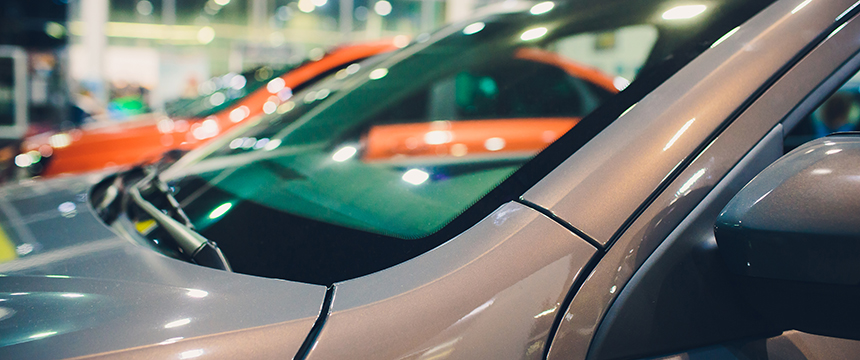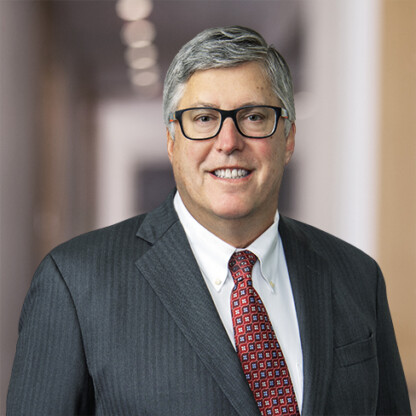Experts Debrief OESA Members on Recent CES Highlights in EVs and Autonomy

CES in Las Vegas has become one of the world’s premier “auto show” events. I was able to see that firsthand with my Foley colleagues in January 2020, before the current unpleasantness began…. This year, CES was back in a combination live and virtual format. On the live side, the large West Hall was renovated to much fanfare and housed the automotive exhibitors –demonstrating the leading role that automotive now plays at CES. All in all, 119 automotive companies exhibited at CES, amid live attendance that was about 30% of pre-pandemic levels.
Last week OESA hosted a CES debrief session with two industry experts. The presentations featured Gary Silberg, the automotive lead at KPMG, and Phil Magney and Danny Kim from VSI Labs, which conducts field research on ADAS, autonomous, and other vehicle technologies, including some onsite demonstrations at CES. All speakers shared interesting observations to guide players in the electrified mobility and infrastructure (EV) space in 2022.
Gary Silberg noted the EVs dominated the automotive scene at CES, with a lot of new models on display including a “vast majority” of exhibitors from China, such as companies like Nio, Xpeng and BYD. (Stellantis, Hyundai and Fisker made in-person appearances as well among the OEM players.) There was a lot of excitement surrounded the Commercial Market and the new EV makers in that space per Silberg – “we are going to see a mix of vehicles we have not seen before” – and the rate of adoption and size of the segment will be interesting to follow. Silberg cautioned that “humility is in order” in terms of predictions in the EV space – there will be big winners but who those winners will be and the exact timing that they will emerge are matters of honest speculation.
Silberg then spent a majority of his time reviewing KPMG’s most recent automotive technology survey. The survey included stakeholders from a variety of segments of the industry and was global in scope. Overall, the industry has some optimism and daresay “swagger” in the way that it worked its way through Coronavirus and a host of other challenges the last two years. 53% of respondents predicted profitable growth in the next 5 years – 17% were “extremely confident” and 36% “somewhat confident” about that. Nearly half of the survey respondents expressed concern about their ability to respond to the next crisis or disruption, and all shared concerns about various supply chain and raw material challenges.
On the EV side, the projected rate of EV adoption by 2030 in the survey was remarkably consistent across respondents, registering at 52% in the U.S., China and Japan, with the EU just behind at 49%. Silberg noted a broad dispersion of results on this question, with some estimates approaching 90% and others closer to 15%. In terms of consumer appetite for EV charging, 41% of survey respondents believe EV owners on low charge would be willing to spend 30 minutes for a recharging to 80% or more, with 27% at 20 minutes being the second most popular response. 42% of survey respondents believed that auto companies are the most trusted industry player to safeguard vehicle data, while more than 50% of the OESA participants at the meeting said “no one” in a mock poll held during the meeting.
The survey covered a lot of other ground and is available here.
The presentation then shifted to VSI Labs, which ran two demonstration vehicles at CES (with a driver and engineer in each vehicle). ADAS and Autonomy are the two primary research areas of focus for VSI. VSI proceeded to give the OESA members a guided tour/prediction of what 2022 will look like in these two areas in a presentation entitled “2022 – Year of EV, Premium ADAS, L3 and Robotaxis.”
Danny Kim of VSI noted that a few L3 deployments will occur in 2022, with most deployments in the L2+ category including door-to-door hands-free navigation systems. He highlighted the “Blue Cruise” product from Ford which is powered by a Mobileye map. Stellantis will launch is first L2 offering in 2022 with TomTom mapping technology, with Nissan launching an entrant in late 2022 called ProPilot2. Kim described L3 technology launches as a “wildcard” for 2022 and the near term, with the regulatory environment still in development including in the EU (hopefully building upon Mercedes Benz’ recent conditional L3 approval from German authorities, which L3 technology will be shipped on S-class vehicles in Germany this year). Kim noted that on the L4 front, most of the 2022 development work will be on the commercial side, including robotaxis, AV shuttles and goods delivery, with automakers and AV systems providers looking hard at potential consumer deployments beginning in the mid-2020s, again subject to further resolution of regulatory uncertainties.
All in all, CES lives but we look forward to returning and seeing the sprawling Automotive scene that we saw in 2020. A simple wish for the future. In the meantime, the Detroit Auto Show will return in September 2022 and much excitement is building for that show here in the Motor City!
